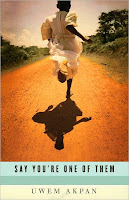 Veteran journalist Gwen Ifill argues that the Black political structure formed during the Civil Rights movement is giving way to a generation of men and women who are the direct beneficiaries of the struggles of the 1960s. She offers incisive, detailed profiles of such prominent leaders as Newark Mayor Cory Booker, Massachusetts Governor Deval Patrick, and U.S. Congressman Artur Davis of Alabama, and also covers up-and-coming figures from across the nation.
Veteran journalist Gwen Ifill argues that the Black political structure formed during the Civil Rights movement is giving way to a generation of men and women who are the direct beneficiaries of the struggles of the 1960s. She offers incisive, detailed profiles of such prominent leaders as Newark Mayor Cory Booker, Massachusetts Governor Deval Patrick, and U.S. Congressman Artur Davis of Alabama, and also covers up-and-coming figures from across the nation.Drawing on interviews with power brokers like Senator Obama, former Secretary of State Colin Powell, Vernon Jordan, the Reverend Jesse Jackson, and many others, as well as her own razor-sharp observations and analysis of such issues as generational conflict and the "black enough" conundrum, Ifill shows why this is a pivotal moment in American history.










































